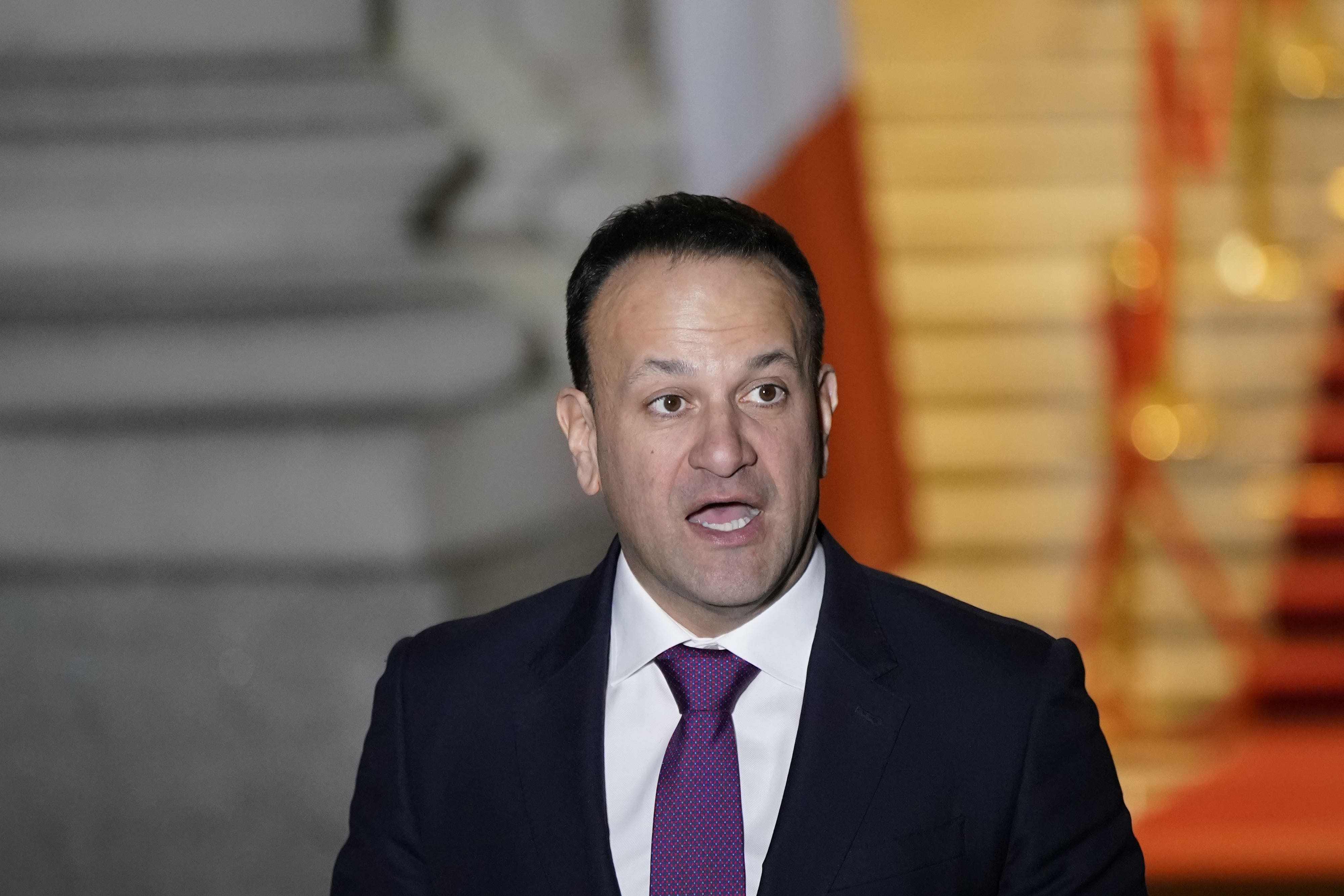Irish premier: It is reasonable for DUP to be given time to consider agreement
Sinn Fein has argued there is now ‘no justification’ for the DUP to continue its boycott of the powersharing institutions.

Your support helps us to tell the story
From reproductive rights to climate change to Big Tech, The Independent is on the ground when the story is developing. Whether it's investigating the financials of Elon Musk's pro-Trump PAC or producing our latest documentary, 'The A Word', which shines a light on the American women fighting for reproductive rights, we know how important it is to parse out the facts from the messaging.
At such a critical moment in US history, we need reporters on the ground. Your donation allows us to keep sending journalists to speak to both sides of the story.
The Independent is trusted by Americans across the entire political spectrum. And unlike many other quality news outlets, we choose not to lock Americans out of our reporting and analysis with paywalls. We believe quality journalism should be available to everyone, paid for by those who can afford it.
Your support makes all the difference.Irish premier Leo Varadkar said it is “reasonable” for the DUP to be given time to consider the agreement struck between the EU and the UK.
He was responding after Sinn Fein said there is now “no justification” for the DUP to continue its “reckless and damaging boycott of democracy”.
Since Northern Ireland’s elections last May, the DUP has refused to engage with the Stormont Assembly and Executive in protest over the implementation of the Northern Ireland Protocol.
During Leaders’ Questions, Sinn Fein president Mary Lou McDonald said it appears the “vital protections” provided by the protocol has been preserved in the Windsor Framework and they have reached “a turning point”.
“There is no justification for the DUP to keep the Executive down while workers, families and businesses struggle with an unprecedented cost-of-living crisis and as they suffer from chronic treatment waiting lists,” she said.
“The onus is now very much on the DUP to join with everyone else in making politics work.”
She said Sinn Fein will seek clarifications on certain aspects of the agreement, which the Taoiseach agreed to facilitate on behalf of all parties.
Ms McDonald added: “So there is now – Taoiseach, I’m sure you’ll agree – no logic for the DUP to continue its blockade. The negotiations are over, the deed has been struck.
“Yes, we need to pore over the fine detail of that. But, Taoiseach, I’m sure you will agree that we can do that work with a functioning Assembly and an Executive in place.
“There is now no room for further delay (or) prevarication.”
We just want to give people a bit of time to read and digest all the documentation, so we're proposing to set aside government time next week
The Taoiseach said he has read the DUP’s statement issued on Monday night and heard an interview with DUP leader Sir Jeffrey Donaldson.
“I think he’s asked for a little bit of time to consider the agreement, to pore over the text, to ask some questions,” he said.
“I think that is reasonable and I think we should allow a little bit of time and space for that to happen and for him to consult with his party. I think that is not unreasonable.
“Certainly, the European Union and British government are happy for that to happen.
“But I do think that we can see that there is strong cross-party support, not just in Northern Ireland but here and also in Britain for this.
“I do hope that allows us to proceed and to open a new chapter in relations and in particularly to allow the government to function again in Northern Ireland, which I agree is what the people of Northern Ireland voted for, and they want decisions to be made locally.”
Mr Varadkar said the Irish parliament will hear statements from TDs on the Windsor Framework next week.
“We just want to give people a bit of time to read and digest all the documentation, so we’re proposing to set aside government time next week,” he told the Dail chamber.
Mr Varadkar said briefings will also be offered to political parties on Tuesday or Wednesday, with foreign affairs minister Micheal Martin to brief the Brexit Stakeholder Forum, which includes political party representatives, industry stakeholders and key Government departments.